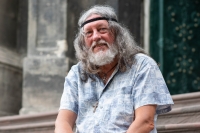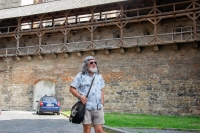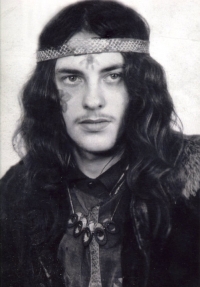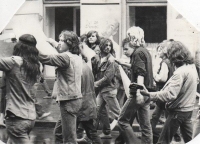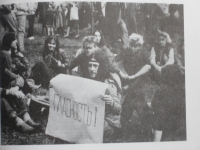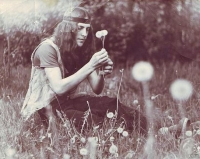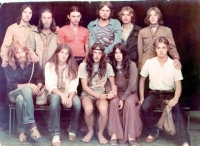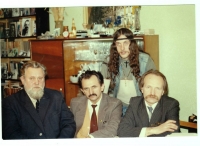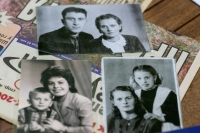„Chtěli jsme prostě být svobodní“ – ukrajinští hipies vs. sovětský systém

Stáhnout obrázek
Alik (Oleh) Olisevyč se narodil 10. září 1958 ve Lvově. Během druhé světové války jeho rodiče odvlekli do pracovního tábora v Německu. Když Rudá armáda vstoupila do Berlína, byl jeho otec odsouzen za údajnou vlastizradu k deseti letům v sovětském koncentračním táboře. Matka po svém návratu do Kyjeva v roce 1945 strávila pět let v táborech nucených prací. Otec se směl vrátit do Lvova až v roce 1957, rok před Alikovým narozením. Alikova matka zemřela v roce 1965, dětství strávil v sovětských internátech, z nichž opakovaně utíkal. Po roce 1968 byl dvakrát zařazen do programu „převýchovy“ problematické mládeže, kde se setkal se staršími „hipíky“, kteří ho uvedli do světa kultury hippies, západní hudby, zahraničního tisku a samizdatu. Stal se členem lvovské komunity hippies a „hipsterů“. K společensko-politické aktivitě Alika inspirovalo založení Solidarity v Polsku v roce 1980. Začal psát dopisy do redakcí zahraničních časopisů (Polsko, Československo a Jugoslávie). Jeden z těchto dopisů byl publikován v jugoslávském magazínu Jukebox v roce 1982 a pan Olisevyč byl kvůli tomu opakovaně vyslýchán důstojníky KGB. V roce 1988 Alik poprvé vycestoval do zahraničí - do Polska a do Československa, kde byl svědkem příprav veřejných politických protestů. Dne 23. srpna 1987 se společně s přáteli zúčastnil protestního setkání v Rize u příležitosti výročí podpisu paktu Ribbentrop-Molotov. Poté Alik Olysevyč společně s Olehem Salem zorganizovali demonstraci za lidská práva ve Lvově 20. září 1987, na které se sešlo okolo dvou stovek protestujících. V roce 1987 ho vyzval moskevský disident Alexandr Rubčenko, aby vedl lidskoprávní skupinu Dovira ve Lvově. V letech 1991-1992 žil Alik Olisevych v Jugoslávii se svojí jugoslávskou manželkou. Nyní je v důchodu a pracuje jako osvětlovač ve lvovském Národním akademickém divadle opery a baletu Solomiji Krušelnycké.
